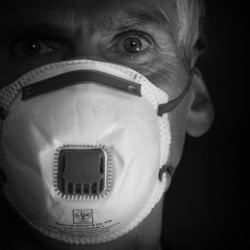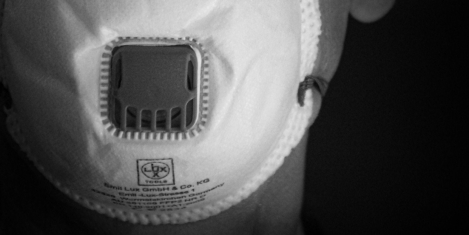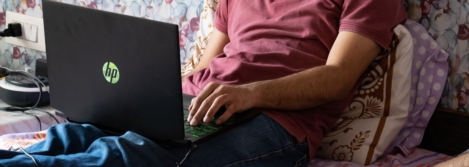September 16, 2020
Search Results for: coronavirus
September 11, 2020
The mental health consequences of COVID grow increasingly clear
by Jayne Smith • News, Wellbeing, Working lives
 The number of self-employed people saying they have “poor” or “very poor” mental health has increased from 6 percent to 26 percent since the beginning of the pandemic (a 300 percent rise), claims new research by IPSE (the Association of Independent Professionals and the Self-Employed). The number saying they had “good” or “excellent” mental health has also dropped significantly since the beginning of the pandemic – from two-thirds (68 percent) to just over a third (39 percent). This was most severe among women (a drop of 54 percent) and young freelancers aged 16-34 (a drop of 49 percent). (more…)
The number of self-employed people saying they have “poor” or “very poor” mental health has increased from 6 percent to 26 percent since the beginning of the pandemic (a 300 percent rise), claims new research by IPSE (the Association of Independent Professionals and the Self-Employed). The number saying they had “good” or “excellent” mental health has also dropped significantly since the beginning of the pandemic – from two-thirds (68 percent) to just over a third (39 percent). This was most severe among women (a drop of 54 percent) and young freelancers aged 16-34 (a drop of 49 percent). (more…)
September 9, 2020
Resilience is missing for many employees
by Jayne Smith • News, Wellbeing Matters, Working lives
 A new report from Aon,examined the views of employers and employees across five major countries in Europe and claim that just 30 percent of employees are resilient while also suggesting that resilience can triple when employers adopt a well-rounded programme of support. Employees with poor resilience have 55 percent lower engagement at work and are 42 percent less likely to want to stay with their employer. In the UK, 29 percent of employees are resilient, and those with poor resilience have 59 percent lower engagement and are 43 percent less likely to want to stay with their employer. (more…)
A new report from Aon,examined the views of employers and employees across five major countries in Europe and claim that just 30 percent of employees are resilient while also suggesting that resilience can triple when employers adopt a well-rounded programme of support. Employees with poor resilience have 55 percent lower engagement at work and are 42 percent less likely to want to stay with their employer. In the UK, 29 percent of employees are resilient, and those with poor resilience have 59 percent lower engagement and are 43 percent less likely to want to stay with their employer. (more…)
September 8, 2020
Majority of businesses plan to move to smaller but more focused offices in future
by Neil Franklin • News, Property
 According to a new independent survey of over 500 senior business decision-makers, nearly three quarters believe COVID-19 will result in more UK businesses downsizing to smaller office spaces in the coming 12 months. Most also say they value the office and will be more focused on its strengths as part of the shift. The data from property developers Accumulate Capital claims to show how the COVID-19 pandemic has affected UK businesses and their commercial property needs. (more…)
According to a new independent survey of over 500 senior business decision-makers, nearly three quarters believe COVID-19 will result in more UK businesses downsizing to smaller office spaces in the coming 12 months. Most also say they value the office and will be more focused on its strengths as part of the shift. The data from property developers Accumulate Capital claims to show how the COVID-19 pandemic has affected UK businesses and their commercial property needs. (more…)
September 4, 2020
Workers feel unsafe returning to the workplace after COVID-19
by Jayne Smith • News, Wellbeing
 Insurance provider Protectivity has asked office workers around the UK how they’re feeling about going back to work as COVID-19 lockdown restrictions ease, what changes they have made during the lockdown period, their thoughts about attending workplace events over the next few months and how they’re feeling about their pets post-lockdown. (more…)
Insurance provider Protectivity has asked office workers around the UK how they’re feeling about going back to work as COVID-19 lockdown restrictions ease, what changes they have made during the lockdown period, their thoughts about attending workplace events over the next few months and how they’re feeling about their pets post-lockdown. (more…)
September 4, 2020
UK business leaders predict office downsizing in the coming year
by Jayne Smith • News, Property
 A new independent survey by Accumulate Capital suggests how the COVID-19 pandemic has affected UK businesses and their commercial property needs. The property development firm commissioned an independent survey of more than 500 senior decision-makers from businesses all over the UK and the majority believe there will be a need for downsizing to smaller office spaces in the future. (more…)
A new independent survey by Accumulate Capital suggests how the COVID-19 pandemic has affected UK businesses and their commercial property needs. The property development firm commissioned an independent survey of more than 500 senior decision-makers from businesses all over the UK and the majority believe there will be a need for downsizing to smaller office spaces in the future. (more…)
September 3, 2020
No, flexible working won`t mean the death of the office and the city
by Jane Parry • Features, Flexible working
 When coronavirus lockdowns were introduced, the shift to flexible working and remote work was sudden and sweeping. Now the British government is hoping the return to the office will be just as swift – to help the economy “get back to normal”. But pushing everyone back to the office full time fails to recognise the many benefits that working from home has brought. It also fails to capitalise on this moment of change. (more…)
When coronavirus lockdowns were introduced, the shift to flexible working and remote work was sudden and sweeping. Now the British government is hoping the return to the office will be just as swift – to help the economy “get back to normal”. But pushing everyone back to the office full time fails to recognise the many benefits that working from home has brought. It also fails to capitalise on this moment of change. (more…)
September 2, 2020
Are employees more productive since lockdown?
by Jayne Smith • Flexible working, News
 With many companies announcing that they will not force employees back to the office until next year, 34 percent of UK workers have admitted to feeling more productive since working from home. That’s according to new ‘Work Different’ research from Qualtrics.
With many companies announcing that they will not force employees back to the office until next year, 34 percent of UK workers have admitted to feeling more productive since working from home. That’s according to new ‘Work Different’ research from Qualtrics.
The research, which surveyed 2,000 UK workers, also claims that a third (31 percent) of workers have felt creative since working outside of the office, while over a quarter (27 percent) believe it’s been easier to collaborate with their colleagues since the coronavirus lockdown began. (more…)
September 1, 2020
Permanent working from home would reduce UK economy by £480 billion
by Neil Franklin • Flexible working, News
 A new study claims that if British workers do not return to their offices at all, the UK economy could contract by £480 billion. The study from the Centre for Economics and Business Research (CEBR), and led by Douglas McWilliams, a former chief economic adviser to the Confederation of British Industry, suggests that in a worst case scenario, the British economy would not return to its size before the coronavirus pandemic until 2025 if people continue working from home as they have over the past few months. (more…)
A new study claims that if British workers do not return to their offices at all, the UK economy could contract by £480 billion. The study from the Centre for Economics and Business Research (CEBR), and led by Douglas McWilliams, a former chief economic adviser to the Confederation of British Industry, suggests that in a worst case scenario, the British economy would not return to its size before the coronavirus pandemic until 2025 if people continue working from home as they have over the past few months. (more…)
August 28, 2020
A new social contract can improve the everyday experience of work
by Mark Spratt • Comment, Workplace
 It’s not happening quickly enough for some and too slowly for others, but most companies are in the midst of managing a return to work and grappling with a very different post COVID-19 world and what it means for employees. HR professionals are paying close attention to how well employees are faring and are looking to build new forms of employee care into company cultures and values. But maybe there is something more they can do to foster employee trust and safety? (more…)
It’s not happening quickly enough for some and too slowly for others, but most companies are in the midst of managing a return to work and grappling with a very different post COVID-19 world and what it means for employees. HR professionals are paying close attention to how well employees are faring and are looking to build new forms of employee care into company cultures and values. But maybe there is something more they can do to foster employee trust and safety? (more…)
August 27, 2020
Number of calls to mental health helpline jump as depression cases double
by Jayne Smith • News, Wellbeing
 Data from the health and wellbeing provider, Health Assured has revealed the number of people calling for support for depression on their EAP (employee assistance programme) helpline increased by 31 percent in June compared to May this year. In June, the helpline received an additional 249 calls regarding the illness. (more…)
Data from the health and wellbeing provider, Health Assured has revealed the number of people calling for support for depression on their EAP (employee assistance programme) helpline increased by 31 percent in June compared to May this year. In June, the helpline received an additional 249 calls regarding the illness. (more…)






 A survey carried out by mental health organisation,
A survey carried out by mental health organisation, 

















September 2, 2020
Remote work and the coming race to the bottom
by Mark Eltringham • Comment, Wellbeing, Working lives